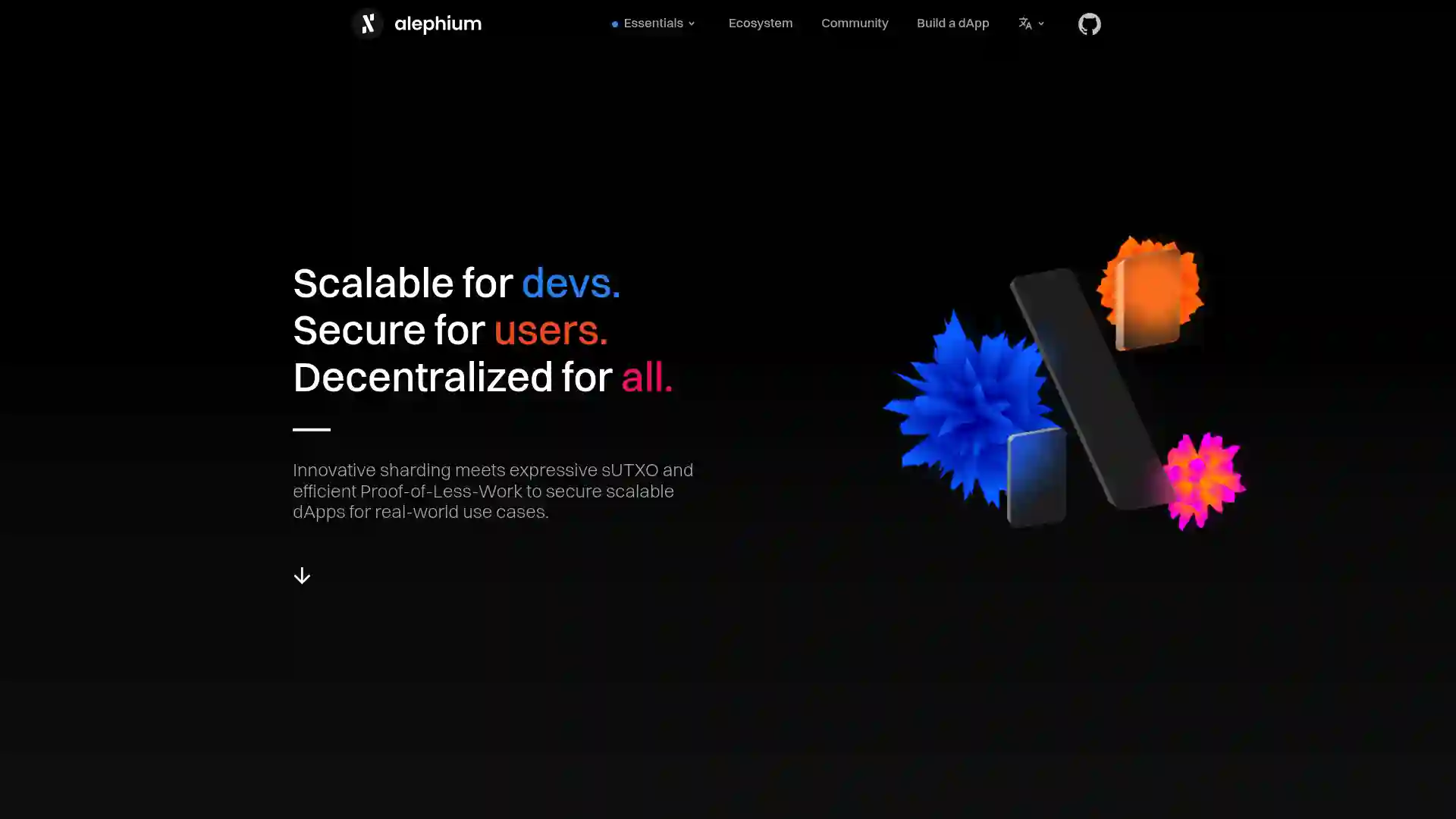Alephium (ALPH)
Alephium (ALPH) is a sharded Layer 1 blockchain that is making waves in the cryptocurrency world with its innovative approach to scalability, security, and energy efficiency. Unlike conventional blockchains, Alephium employs sharding to enhance its capability to handle a higher volume of transactions efficiently, making it a promising contender in the decentralized finance (DeFi) and smart contract space.
The architecture of Alephium
Sharding for scalability
At the heart of Alephium's architecture is its use of sharding. This technique divides the blockchain into smaller, more manageable segments known as shards. By allowing parallel processing of transactions across these shards, Alephium significantly enhances its scalability, enabling the network to handle many transactions simultaneously and reducing congestion.

| Ticker | ALPH |
| Category | Cryptocurrency |
| Website | https://alephium.org |
| @alephium | |
| Telegram | alephiumgroup |
| https://www.reddit.com/r/Alephium/ | |
| Contract Addresses | |
|---|---|
| ethereum | 0x59...a6 Copied! Copied! |
| binance-smart-chain | 0x86...c8 Copied! Copied! |
Proof of Less Work consensus mechanism
Alephium introduces an innovative consensus mechanism called Proof of Less Work (PoLW). This mechanism combines physical work and coin economics to dynamically adjust mining difficulty based on network conditions. The PoLW system is designed to be energy-efficient, using only 1/8 of the energy required by Bitcoin under similar conditions, thereby offering a more sustainable alternative in the blockchain ecosystem.
The BlockFlow algorithm
Another key component of Alephium’s technological foundation is the BlockFlow algorithm. This algorithm ensures that transactions are processed in an orderly and efficient manner, which reduces the likelihood of network congestion and enhances overall performance.
Security features of Alephium
Alphred virtual machine and stateful UTXO model
Alephium's custom virtual machine, known as Alphred, addresses many of the security and usability issues present in existing decentralized application platforms. Alphred enhances the development experience by providing a secure and efficient environment for creating and executing smart contracts, particularly those related to DeFi applications.
Alephium also introduces a stateful UTXO model, which combines the scalability of the UTXO model with the programmability of the account model used by Ethereum. This approach allows developers to create complex smart contracts while maintaining a high level of security.
Multi-layered security
To safeguard against potential attacks, Alephium employs multiple layers of security. The PoLW mechanism makes it economically unfeasible for attackers to gain control of the network. Additionally, the sharded architecture ensures that even if one shard is compromised, the rest of the network remains secure. The use of the UTXO model further bolsters security by preventing manipulation of transaction histories.
Energy efficiency and environmental impact
One of Alephium’s standout features is its focus on energy efficiency. By requiring less computational power to secure the network, Alephium reduces its environmental impact, positioning itself as a sustainable option compared to traditional Proof of Work blockchains. This energy efficiency is crucial, especially as the environmental footprint of blockchain technology faces increasing scrutiny.
Alephium's programming and developer ecosystem
Alephium features its own programming language, specifically designed to create efficient and secure decentralized finance applications. This language simplifies the creation of smart contracts, making it more accessible for developers and fostering a growing ecosystem that encourages contributions.
